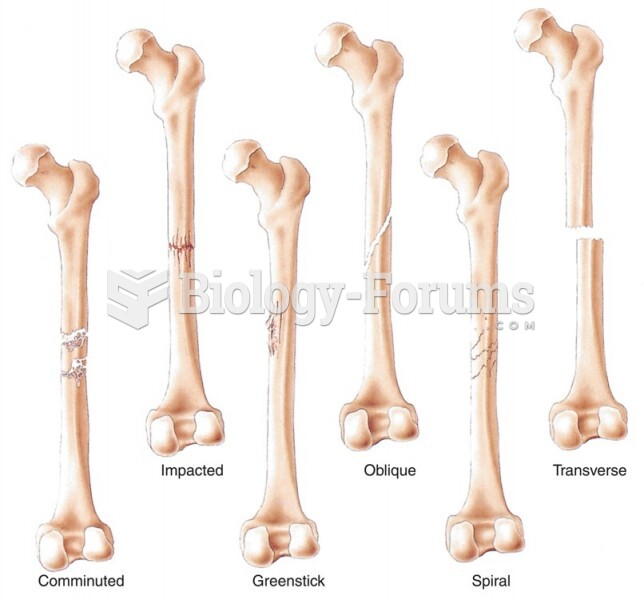|
|
|
The human body produces and destroys 15 million blood cells every second.
Chronic marijuana use can damage the white blood cells and reduce the immune system's ability to respond to disease by as much as 40%. Without a strong immune system, the body is vulnerable to all kinds of degenerative and infectious diseases.
More than 150,000 Americans killed by cardiovascular disease are younger than the age of 65 years.
Egg cells are about the size of a grain of sand. They are formed inside of a female's ovaries before she is even born.
Historic treatments for rheumatoid arthritis have included gold salts, acupuncture, a diet consisting of apples or rhubarb, nutmeg, nettles, bee venom, bracelets made of copper, prayer, rest, tooth extractions, fasting, honey, vitamins, insulin, snow collected on Christmas, magnets, and electric convulsion therapy.







